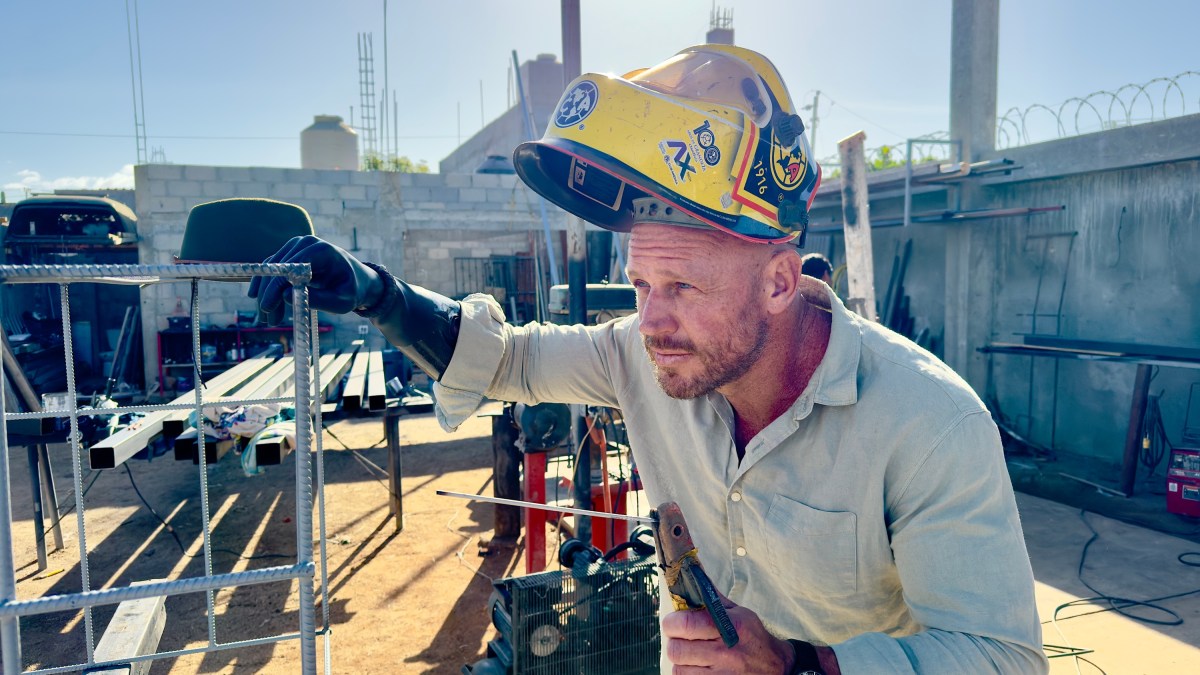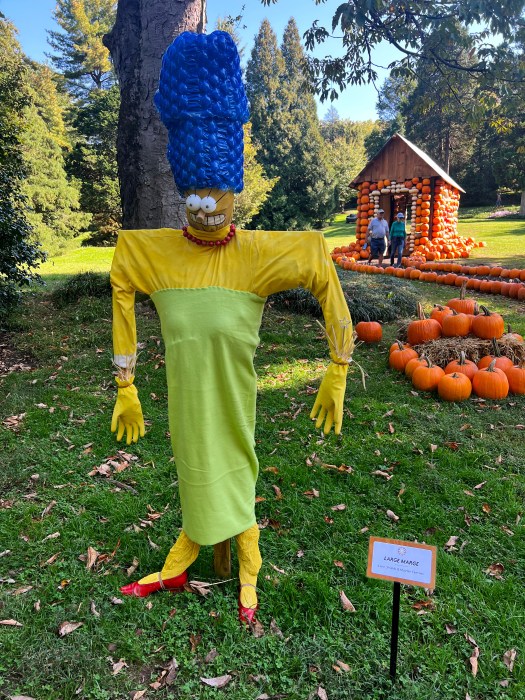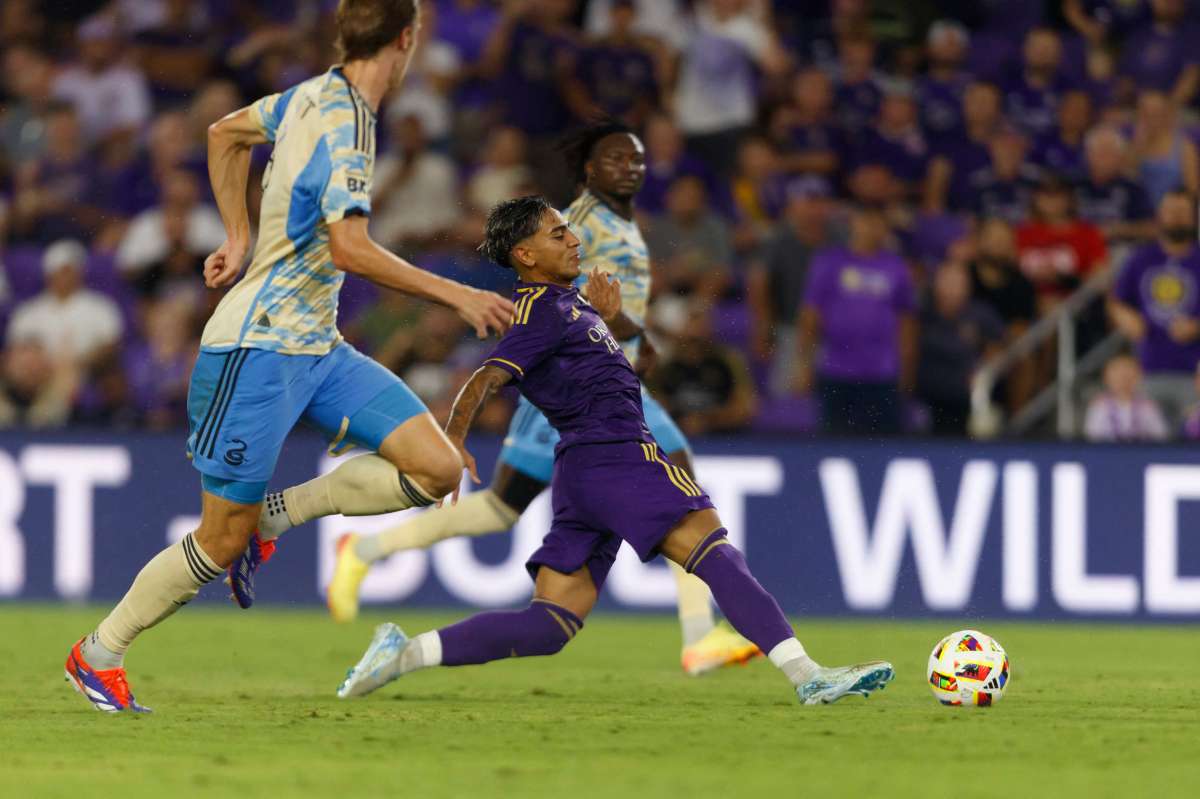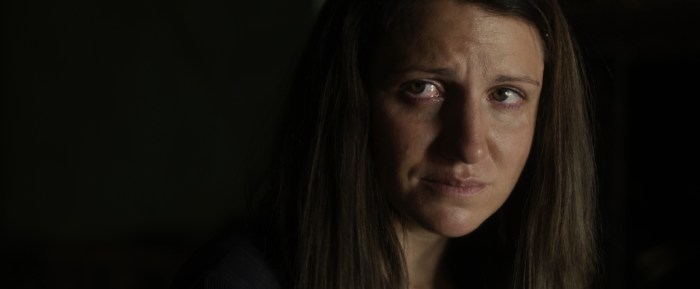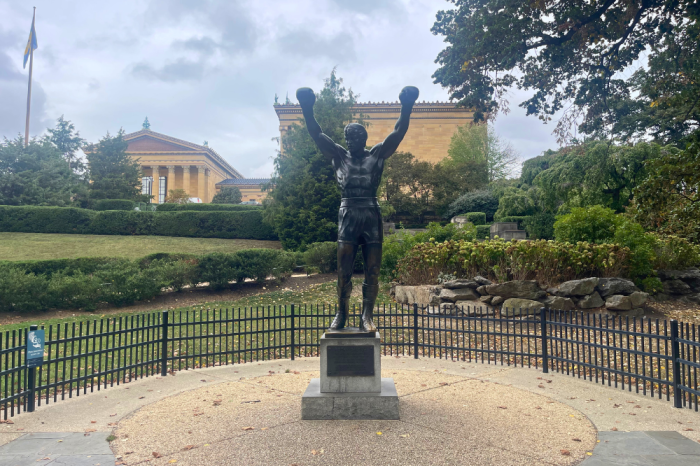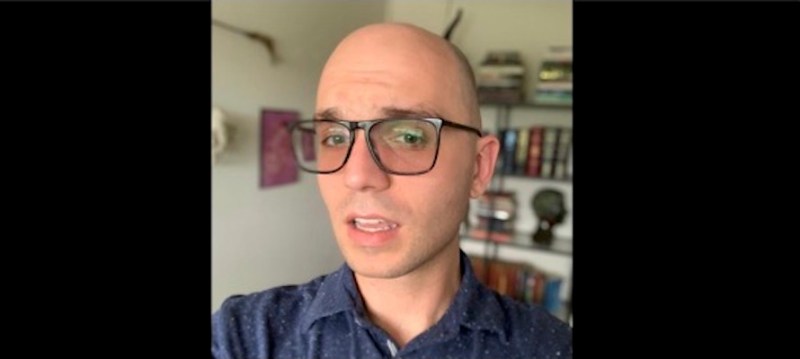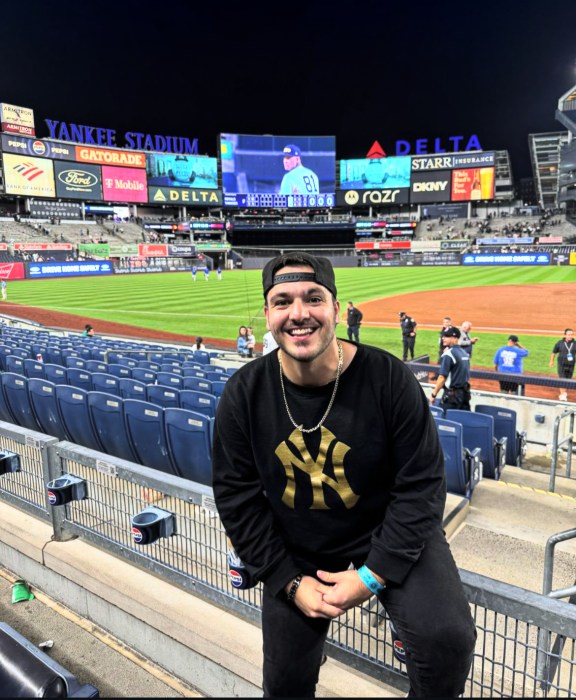In 2009, Paul de Gelder survived a tiger shark attack, and lived to tell the tale.
Now, the Australian Navy diver is spending his time advocating for sharks, and viewers can see much of his efforts on Discovery Channel’s Shark Week. The annual multi-day list of programming from the network is a fan favorite for many reasons, and 2024 will see John Cena stepping in as its host.
With de Gelder specifically, audiences will follow him and his colleagues on a few different adventures. ‘Great White Serial Killer: Sea of Blood’, airs Monday, July 8, at 10 p.m. ET/PT. ‘Deadliest Bite’, premieres Tuesday, July 9, at 8 p.m. ET/PT. And ‘The Real Sharkano’ and ‘Shark Attack Island’ will close it out for the environmentalist on Friday, July 12, at 8 and 10 p.m. ET/PT.
To dive a little deeper into what to expect from his programming, and how he went from an attack survivor to a shark advocate, de Gelder sat down with Metro to talk all things Shark Week.
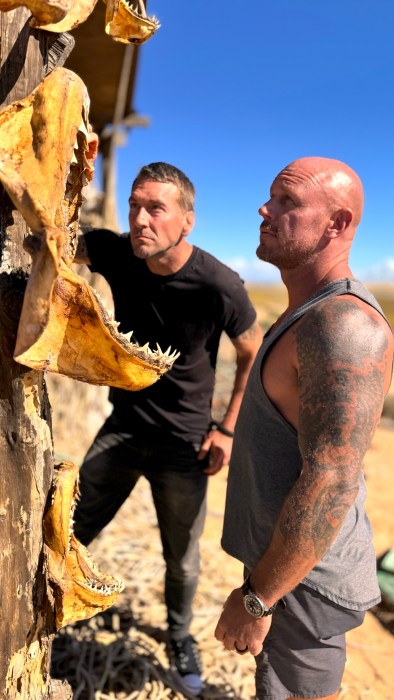
After everything that happened to you, I was curious on how you got into this line of work—I saw you were approached by some documentaries after your encounter with the shark. What were your initial thoughts?
The first [documentary] I did was ’60 Minutes‘ in Australia. I was still on a lot of pain medication because I was in the hospital, so I had no fear—and it didn’t really have much to do with sharks in the beginning. It was talking about my story and at the end, they wanted me to dive in the aquarium in Sydney with gray nurse sharks, which you guys would call sand tigers. I was like, yeah, okay, sure… I knew about sand tigers and they are kind of like puppy dogs. They don’t attack anyone. So I went along with the idea and did that.
And then two years later, ’60 Minutes’ wanted to do an update on where I was now because I’d returned to work with the Navy, I was now a Navy diving instructor. They wanted me to face my fear and take me to Fiji to go diving with the species of shark that had actually nearly killed me… So all I thought was, hell yeah, free trip to Fiji, let’s go to Fiji for free.
I did that, and then I started learning about sharks over the previous years because my shark attack was so big in the media. I always said that I never blamed the shark. I lived an inherently dangerous life riding motorcycles, jumping out of aircrafts, diving. And so you can’t live an inherently dangerous life and then get upset when something goes wrong. That’s just part and parcel of what it is, you’ve got to accept the responsibility of that.
So every time there was a negative shark interaction in Australia, the media would come to me and ask me for my opinion and why are the sharks attacking people? How do we stay safe? And I had no idea until I got attacked. I hated them up until then.
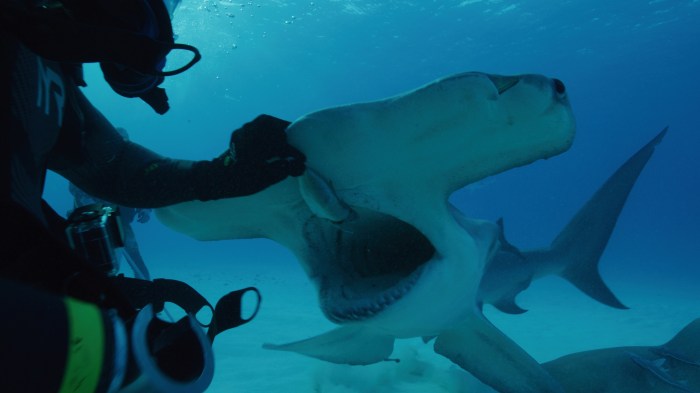
So doing that research helped change your mind on sharks?
I thought instead of just being one of these dumbos on TV that just gives a mouthy opinion and doesn’t know what they’re talking about, [I’d learn.] Knowledge dispels fear, and I’ve got to figure out why this is happening so I can give an educated opinion instead of just an opinion.
There’s a wealth of knowledge out there and the more I learned about sharks, the more I realized how little we have to fear of them, but how much they have to fear from us. Comparatively speaking, 10 people on the whole planet die from a shark attack as opposed to over a hundred million sharks we kill a year. So who’s the real monster in this scenario?
So I thought this is a really great transfer from my military service because my job in the military was to stand up for those who couldn’t stand up for themselves. And now I have a role to speak up for this animal that doesn’t have a voice, but is being massacred on an unholy scale. And so it gives me the sense of purpose to be able to use not the same sort of skills, but the same passion, purpose, and value to do what I was doing in the military.
You have a few different episodes that will premiere during ‘Shark Week.’ What can people expect from them?
I have such a huge variety in what I do, but I see my main role as being the conduit between the scientists and the audience. Scientists sometimes speak very technically, and then I break it down into normal speak that I understand, and then I pass that onto the audience so we can all get a full picture of what’s going on.
It’s so many different scenarios—I’m in the Sea of Cortez where great white sharks are attacking fishermen there, I’m in the Solomon Islands free diving next to an underwater volcano while it’s erupting, and I’m trying to do the first ever shark survey to find out how climate change and commercial fishing are affecting the shark and fish populations in that area.
And thereby [it’s] affecting the indigenous tribes as well that rely on those fish and sharks to eat. So it’s this huge big role, it’s very diverse. And then you’ve got everyone else I work with as well, with 21 hours of TV that we have to show this year with so many places around the world.
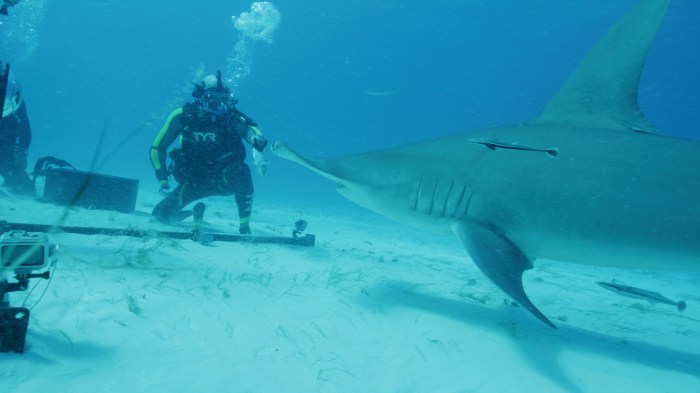
Do any moments from filming this year stand out to you as surprising?
I feel like every year I discover something new about the sharks. I’ve never gotten out of the water for fear of my life with sharks ever filming a Shark Week in 11 years… never, until this year. You would think it was a great white or a tiger or a bull shark. No, it was a school of little silky sharks in the Solomon Islands near the volcano.
These sharks have never seen a human being before, they don’t know what I am. They were so aggressive, and so I jumped straight back out of the water and I waited for my two teammates to get back in with me. We had a force in numbers, and I felt so pathetic. I’m like, I’m getting out of the water scared from little five-foot sharks, and I dive with tiger sharks… So there’s always something that gets you every year.
Why, in your opinion, is Shark Week important?
I think it’s important because most people around the world will never see a shark with their own eyeballs. Some people never go to the ocean their whole life. And so sharks are still this kind of mythical being that they’ve seen on TV, but they’ve never really seen in real life. So giving them the exposure to all of the amazing species and also breaking down that fear that everyone inherently has.
When you don’t know an environment, you might feel unsafe in the ocean, it’s so big and scary and full of monsters. So, we get to go and show these people that they’re not monsters. It’s not a scary environment if you know what you’re doing. You treat these animals with respect, and most of the time, they’ll treat you with respect.
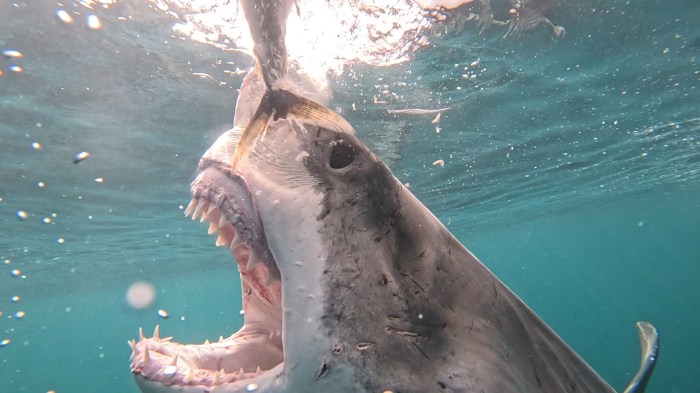
Shark Week kicks off on Discovery Channel July 7 at 8 p.m. ET.



